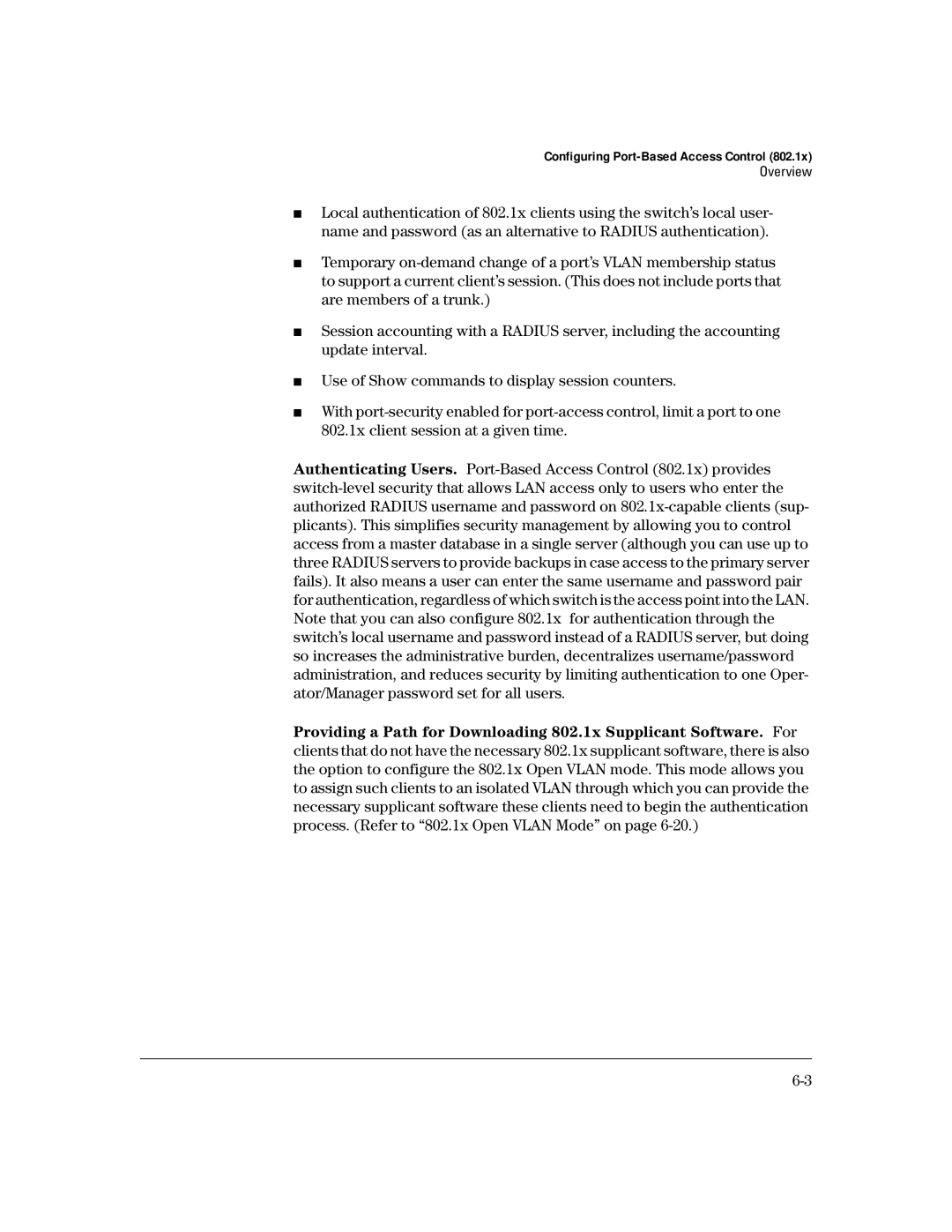Configuring Port-Based Access Control (802.1x)
Overview
■Local authentication of 802.1x clients using the switch’s local user- name and password (as an alternative to RADIUS authentication).
■Temporary
■Session accounting with a RADIUS server, including the accounting update interval.
■Use of Show commands to display session counters.
■With
Authenticating Users.
Providing a Path for Downloading 802.1x Supplicant Software. For clients that do not have the necessary 802.1x supplicant software, there is also the option to configure the 802.1x Open VLAN mode. This mode allows you to assign such clients to an isolated VLAN through which you can provide the necessary supplicant software these clients need to begin the authentication process. (Refer to “802.1x Open VLAN Mode” on page
